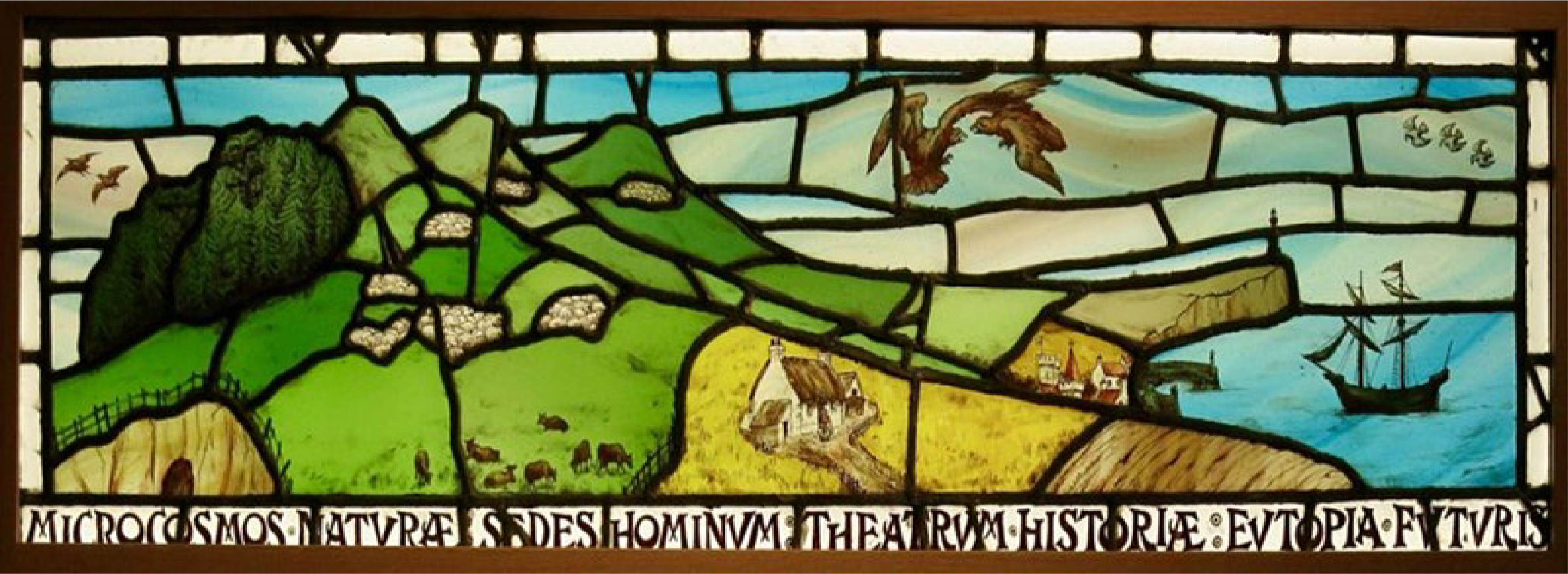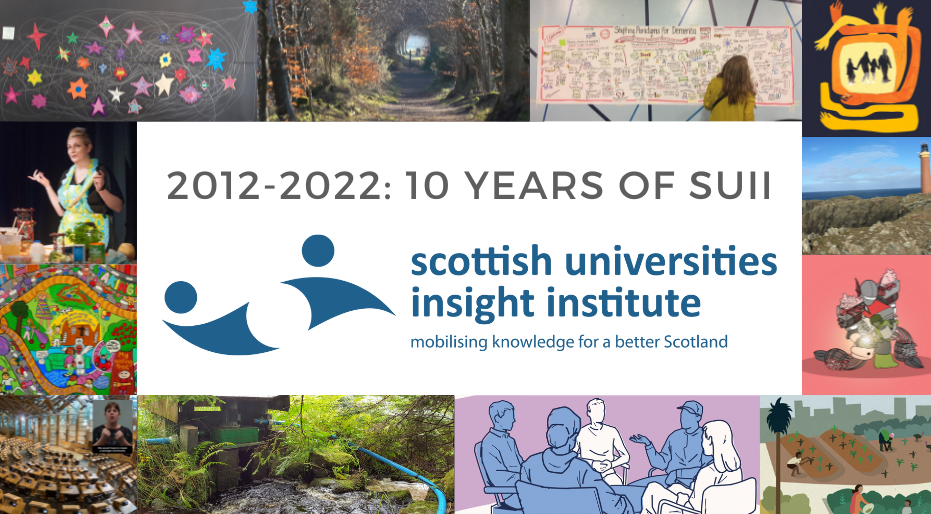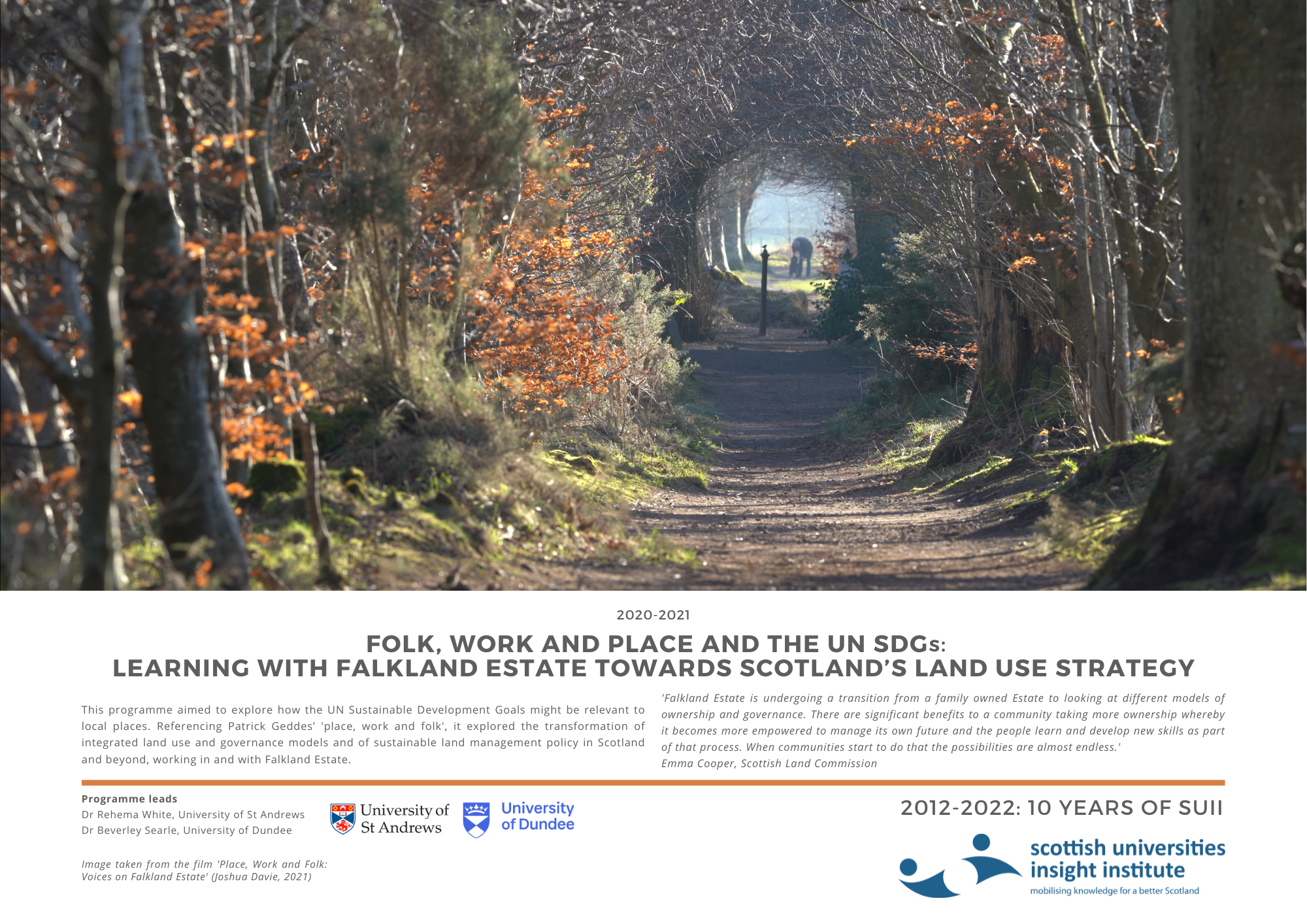
Landscapes and places shape people and cultures; land holds species and habitats; land can deliver shared prosperity or privilege for a few. Patrick Geddes’ triad of ‘folk, place, work’ provides a framework for shifts in land use that address social, environmental and economic challenges. Well managed land provides ecosystem services including food and forest products, carbon emission mitigation, catchment flooding reduction, decreased pollution and biodiversity conservation. Together with provision of recreational and cultural services for local communities and tourists, these benefits are increasingly being delivered in multifaceted approaches that could align well with the holistic approach of the UN Sustainable Development Goals (SDGs). In Scotland, the unrealised Land Use Strategy lays out objectives relating to the environment, economy and communities, whilst the Land Rights and Responsibilities Statement indicates stakeholder principles. It is unclear to what extent these policies map to the SDGs and their interactivities, although the Scottish Land Commission is addressing their practical implications. Falkland Estate is a timely example of a system in transformation, exploring integrated land use and governance change.
In this programme, a partnership between Universities, Falkland Estate and the Land Commission worked to: 1) engage key to explore scenarios for transforming land use and potential governance models; 2) bring together international experience, policy makers, community members and academics to further relate empirical context to existing SDGs mapping tools.


To mark 10 years of SUII, we designed a series of posters showcasing some programmes supported by SUII between 2012 and 2022. Click on the image above for a full view of the poster created for this particular programme.
Visit our Insights page to find out more about the 10 Years of SUII.